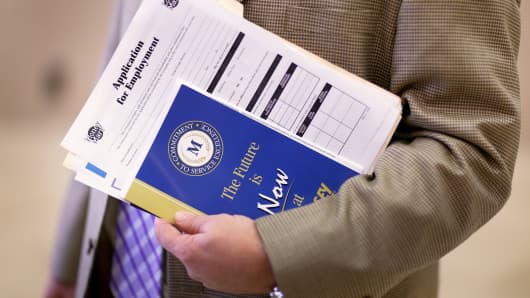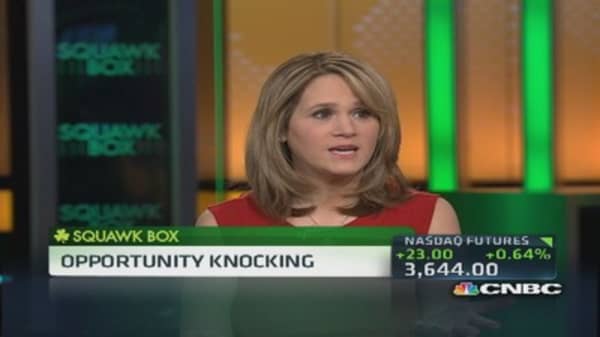Being out of work for an extended period hurts job seekers in two ways, according the researchers, led by Alan Krueger, a labor market economist and former chief White House economic advisor.
First, these job candidates get discouraged and, over time, tend to look less intensively than those who lost their jobs more recently. When they do find a job opening, those out of work for extended periods are viewed more skeptically by employers who worry that their skills may be out of date, or that a long stretch out of work indicates the candidate is somehow less qualified.
As a result, these workers remain "on the margins of the labor force," the researchers said. Even as the economy continues to recover and the overall jobless rate declines, these long-term jobless workers aren't being helped by the improved job prospects for those out of worker for a short period.
(Read over: Check out the gimmick in the federal jobless benefits bill)
One indication: The pace of hiring isn't any better for the long-term jobless in regions with a strong local job market. In states with the lowest unemployment rates, job seekers out of work for long periods were no better off than those in states with high rates of unemployment.
Many such job seekers simply give up altogether, and are no longer counted as unemployed because the Labor Department no longer counts them as part of the overall labor force. While the official unemployment rate has fallen steadily over the past year, the departure of these so-called discouraged workers has tended to depress the "official" unemployment rate.
Some economist have suggested those workers will eventually return to the labor pool, as they have in the recoveries from past recessions. But the Princeton researchers say this time may be different.
"A concerted effort will be needed to raise the employment prospects of the long-term unemployed, especially as they are likely to withdraw from the job market at an increasing rate," Krueger wrote in the paper, which was co-authored by his Princeton University colleagues Judd Cramer and David Cho.





